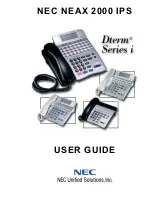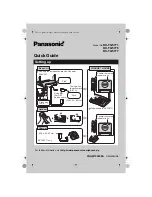
FF1: System Programming
Section 400-Programming
Page 1-100
●
DBS 576 (USA) issued 05/20/98
576-13-400
FF1
System
FF2
Trunks
FF3
Extensions
FF4
FF-/Soft Keys
FF5
Groups
FF6
TRS/ARS
0
System
Configuration
FF7
Applications
FF8
Maintenance
Introduction
Appendix A
Appendix B
FF1
System
FF2
Trunks
FF3
Extensions
FF4
FF-/Soft Keys
FF5
Groups
FF6
TRS/ARS
0
System
Configuration
FF7
Applications
FF8
Maintenance
Introduction
Appendix A
Appendix B
Notes:
If SSD Assignment to Groups is disabled (default), the system will ignore this address, which means
that all extensions will be able to use all SSD codes.
Related Programming:
SSD Assignment to Groups (pg. 1-23) FF1 0 02 0003 Hold (0 or 1) Hold
Notes:
If SSD Assignment to Groups is disabled (default), the system will ignore this address, which means
that all extensions will be able to use all SSD codes.
Related Programming:
SSD Assignment to Groups (pg. 1-23) FF1 0 02 0003 Hold (0 or 1) Hold
SSD Block Assignment to MCO Tenant Groups (pg. 1-99) FF1 0 15 (0001-0072) Hold (0-72) Hold
SSD Common Block for MCO Tenant Groups
(all CPCs) - Version 1.0 or higher
Set the number of System Speed Dial (SSD) bins allowed for all MCO Tenant Groups.
FF1 0 16 0001 Hold (0-800) Hold
Number of SSD Bins
Allowed
For example, an entry of “100” means that all MCO Tenant Groups can use SSDs 0-99.
default: 0 [no common block]
!!
SSD Block Assignment
(all CPCs) - Version 1.0 or higher
Divide System Speed Dial bins into ranges (called “blocks”).
FF1 0 17 (0001-0144) Hold (0-799 or 0-800) Hold
Odd Address Nos.: Starting SSD Bin No. for block
(see table, next page for defaults)
(0001, 0003, 0005,...0143)
Even Address Nos.: Count of bins in block
(0002, 0004, 0006,...0144)
Starting SSD
Count of SSD
Bin No.
bins in block
753 %#$
















































